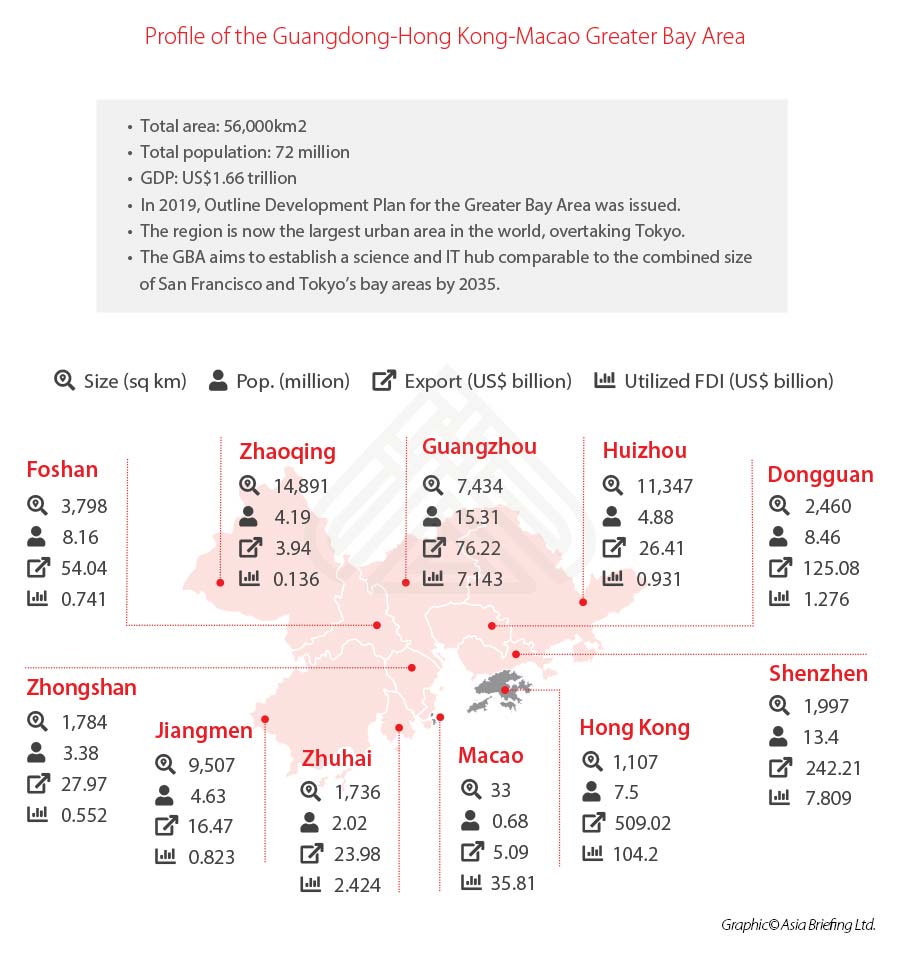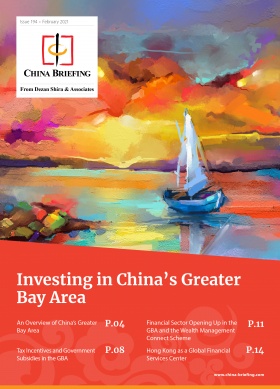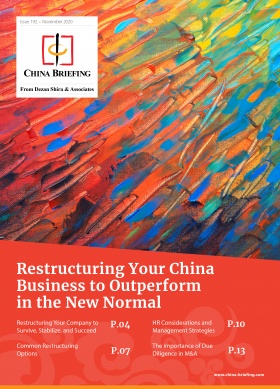Greater Bay Area University to be Built in Dongguan: What We Know
The Outline Development Plan for the Guangdong-Hong Kong-Macao Greater Bay Area was released in 2019 and marked the official launch of the Greater Bay Area (the GBA). In keeping with the Plan, the central government agreed tentatively to build a high-quality, high-level GBA University to serve as a leading research institution in the country.
Unlike other super clusters like Silicon Valley, which has the elite Stanford University, or the metropolitan area around Tokyo Bay, which has the University of Tokyo and Tokyo Tech, top-notch universities are missing in Guangdong, where the mainland GBA cities are located.
China will endeavor to build the GBA University into a leading world-class institution, which would facilitate both the GBA’s development and the country’s Belt and Road Initiatives by attracting and nurturing talents and contributing to research.
Location and project timeline
According to a document released by the Dongguan Municipal Government on March 11, 2020, the GBA University will build two campuses in the Dongguan Songshan Lake High-tech Zone and Dongguan’s Binhaiwan New Area in a six-years period (2020-2026). The total project will cost around RMB 10 billion (US$1.6 billion).
By far, the relevant approval for building the campus and the bidding for the design scheme of Songshan Lake Campus have been completed. The construction of Songshan Lake Campus will start in the middle of 2021 and is expected to be completed in 2023, when it plans to officially enroll students.
The GBA University is positioned as a new and high-level research-oriented university with a focus on science and engineering. It will carry out full undergraduate, master, and doctoral education.
Why Dongguan?
Many are surprised that the GBA University is being planned in Dongguan rather than Shenzhen, which has been the region’s most advanced manufacturing center, or Guangzhou, which serves as the region’s political and administrative heart.
Long recognized as a low-end manufacturing hub, Dongguan has been trying to rebrand itself as a new and modern hub for the production of higher value-added goods. Several strategic industries, including high-end electronics, biotechnology, new-generation internet, and 3D printing, have been chosen by the local government to receive the most support. Additionally, Dongguan is seeking to become China’s center of robotics and automated manufacturing technology, positioning itself as a crucial spot in the changing landscape of Chinese manufacturing.
The city thus has good motivation to attract high level universities and institutions to support this transition.
The Binhaiwan New Area, where the GBA University campus will be located lies right on the strategic corridor between the northern districts of Shenzhen and the special economic zone in Nansha on the southern fringes of Guangzhou. Dongguan has plans to invite a university from Hong Kong to set up another campus in the same district.
Another potential reason for choosing Dongguan is that the land there is cheaper than other first-tier locations. That is also why many other companies have been relocating to Dongguan, such as Huawei. Huawei has built a research and development campus of its own in Dongguan that will accommodate 25,000 employees.
WEBINAR – China’s Greater Bay Area: Exploring Key Sectors for Direct Investment and M&A
Tuesday, July 13, 2021 | 4:30 PM Hong Kong / 9:30 AM London
Join us as we bring together a panel of top foreign business experts from four leading China business consulting organizations to address the sector opportunities in the GBA for trade, FDI, and M&A.
Speakers from the Embassy of the People’s Republic of China to the United Kingdom, the 48 Group, China Investment Research, Charltons Law, and Dezan Shira & Associates will discuss the growing number of business and investment opportunities within the GBA, focusing on several key sectors, through keynote presentations, a panel discussion and Q&A session.
Key features of China’s Greater Bay Area
The Guangdong-Hong Kong-Macao Greater Bay Area (the GBA) is a national initiative aimed at building a world-class city cluster in Southern China. As highlighted by the Chinese government’s 13th Five-Year-Plan, it is a key driver of the country’s technology ambitions, market opening reforms, and facilitator of the Belt and Road initiative.
The region comprises of nine cities in the Pearl River Delta (Shenzhen, Guangzhou, Foshan, Dongguan, Zhuhai, Zhongshan, Huizhou, Zhaoqing, Jiangmen), and two administrative regions (Hong Kong and Macao).
Made up a population of over 70 million people, the GBA contributes to more than one-tenth of China’s economy and is home to tens of thousands of enterprises in multiple industries and sectors.
Under the GBA plan, the region will be established as a globally competitive, connected, and innovative mega-region by 2035. Already, at the end of 2019, the GDP reached US$1.68 trillion, and its GDP per capita was US$23,371.
Technology has been key to the region’s rapid growth, evolving from ‘factory to the world’ in the first phase (1980 – 2010) to becoming the epicenter of technology in the past 10 years. Hong Kong – with some of the world’s leading research universities – along with Shenzhen – the tech hub that currently rivals Silicon Valley – are both leading the charge in these innovation building plans.
The GBA Outline Development Plan commits to accelerating the future growth of new pillar industries, including new-generation information technology, biotechnology, high-end equipment manufacturing and new materials, and pledges to step up the protection of IP protection mechanisms.
As proposed in the Outline Development Plan, the GBA will also support higher education institutions from Guangdong, Hong Kong, and Macao to jointly operate education institutions, and encourage the joint development of academic programs, laboratories, and research centers.
Currently, the Chinese University of Hong Kong runs a campus in Shenzhen and the Hong Kong Baptist University operates the United International College jointly with Beijing Normal University in Zhuhai.
Plans are also afoot for the City University of Hong Kong to open a university in Dongguan jointly with Dongguan University of Technology and for Hong Kong Polytechnic University to run a campus in Foshan.
About Us
China Briefing is written and produced by Dezan Shira & Associates. The practice assists foreign investors into China and has done so since 1992 through offices in Beijing, Tianjin, Dalian, Qingdao, Shanghai, Hangzhou, Ningbo, Suzhou, Guangzhou, Dongguan, Zhongshan, Shenzhen, and Hong Kong. Please contact the firm for assistance in China at china@dezshira.com.
Dezan Shira & Associates has offices in Vietnam, Indonesia, Singapore, United States, Germany, Italy, India, and Russia, in addition to our trade research facilities along the Belt & Road Initiative. We also have partner firms assisting foreign investors in The Philippines, Malaysia, Thailand, Bangladesh.
- Previous Article European Parliament Votes to Freeze the EU-China Comprehensive Agreement on Investment
- Next Article China’s Census 2021: 5 Takeaways for Foreign Investors










